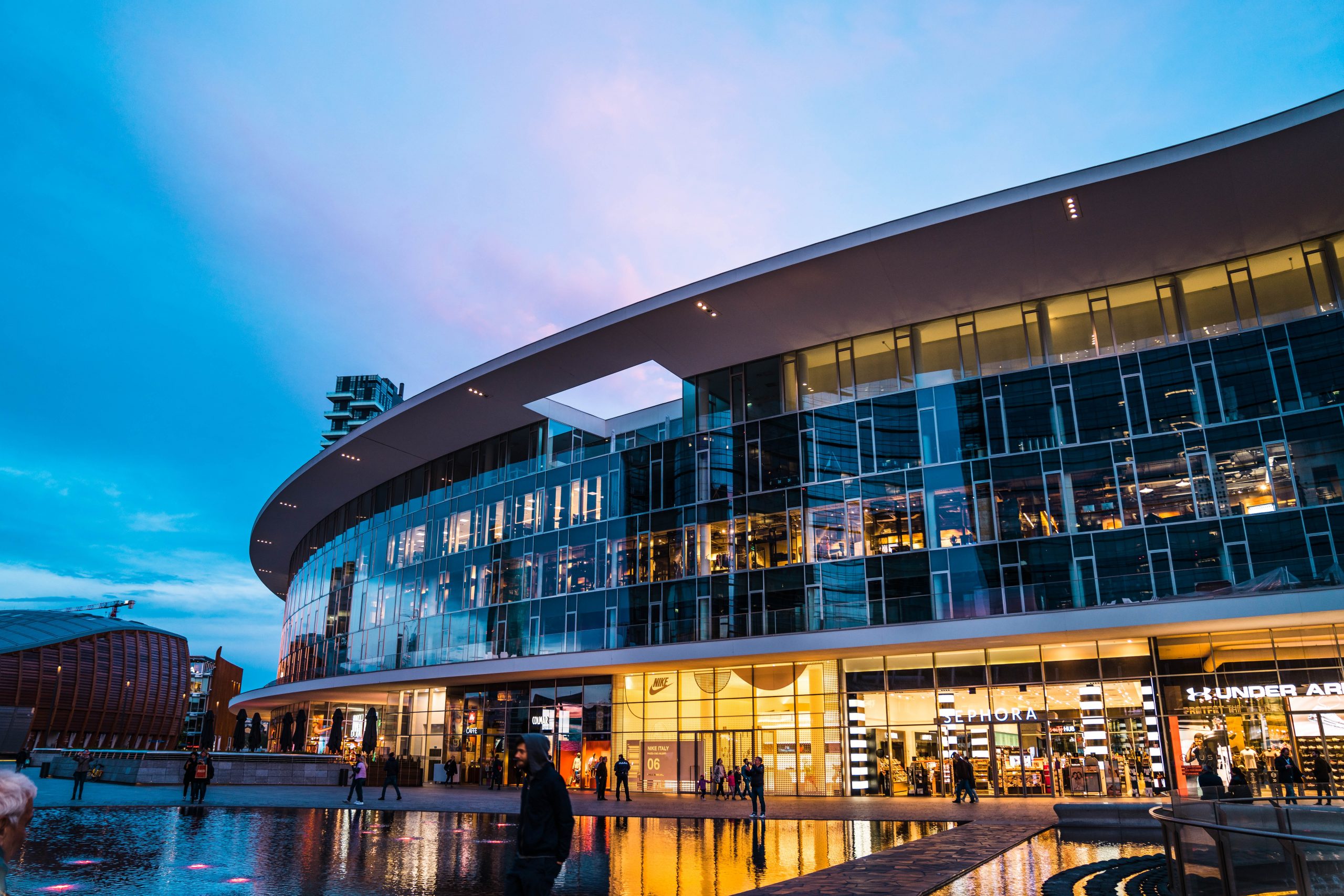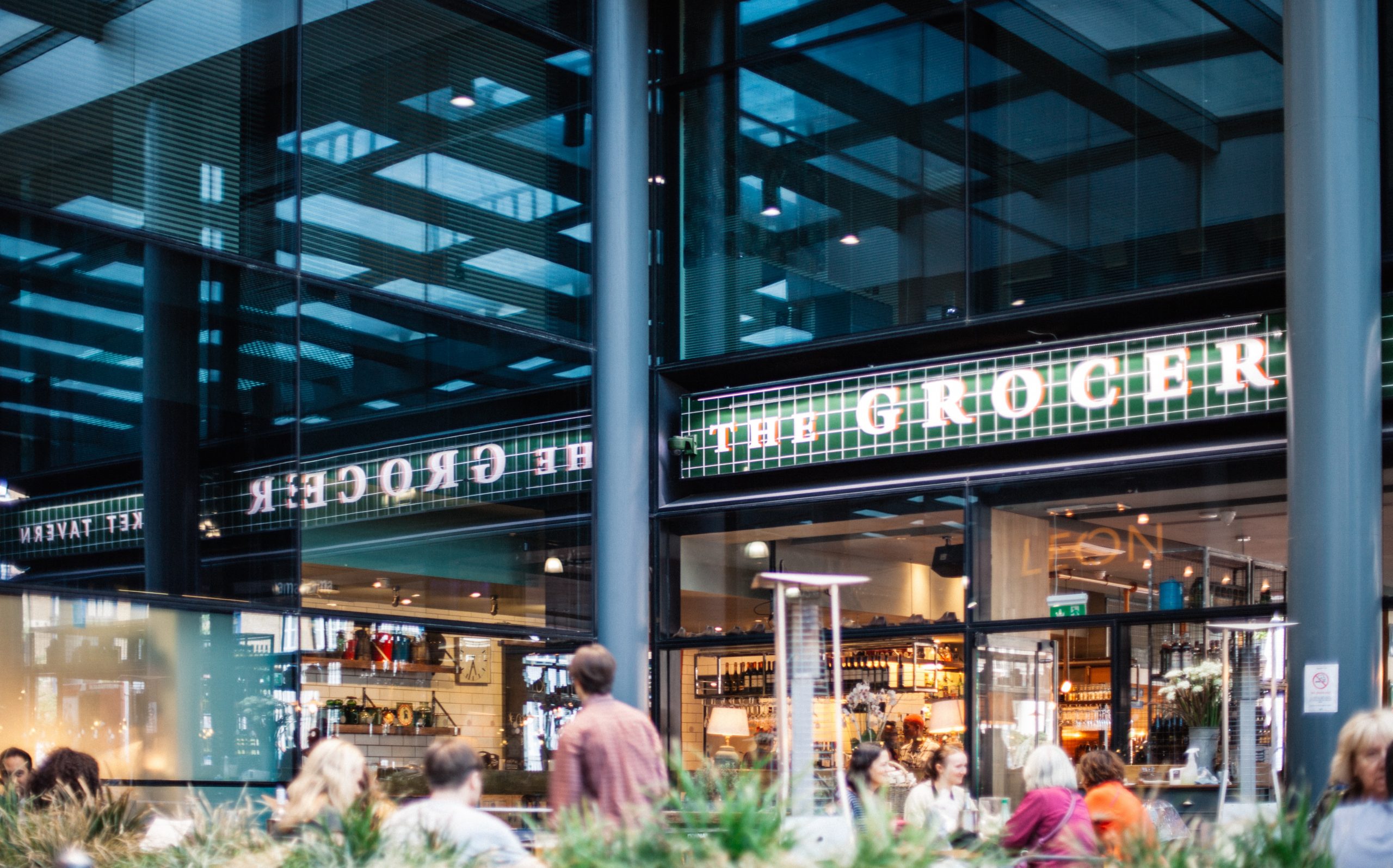Investing in Retail Property: The Ultimate Guide


As a commercial real estate investor you have plenty of options. There are office buildings, industrial spaces, residential real estate, and a number of other property types to consider. However, in this article we’ll be focusing on retail real estate.
As with any investment, there are a number of pros and cons to consider. We’ll cover them all and help you determine if investing in retail property is the right choice for you.
Keep reading for our ultimate guide on retail real estate investments.
What is Retail Property?
Retail real estate refers to any property that consists of shopping and entertainment establishments. This could include clothing stores, grocery stores, restaurants, and any other business that sells products and services to consumers.
Types of Retail Real Estate
There are many different types of retail properties to invest in. Some of the most common types are:
Shopping Malls: One large building or complex with multiple enclosed stores inside. They usually include department stores, entertainment, and food options.
Lifestyle Centers and Power Centers: These are similar to malls, except that the stores aren’t enclosed so consumers have to walk outside to get from store to store.
Strip Malls: These properties are the same idea as a lifestyle center but smaller. They often include a grocery store surrounded by several smaller retailers.
Convenience Centers: A smaller retailer property with retailers that offer consumers quick purchases, such as convenience stores, drug stores, laundromats, etc.

The Pros of Investing in Retail Real Estate
Investing in retail properties offers a number of benefits compared to other types of real estate, such as:
Triple-Net Leases
Most retail stores like to have control over the look and feel of their business. They want to be able to customize the design and make improvements whenever they see fit. Because of this, the triple-net lease is very popular in retail real estate.
With this type of lease, the tenant is responsible for taxes, building insurance, and maintenance, making it a very hands-off investment for the landlord. In this scenario, you’ll mostly just collect the rent check. Your only responsibility will be any large repairs that need to be done to the building.
Not every retail property will use triple-net leases, so do your research before investing. However, you’ll find this arrangement is much more common with these types of properties.
Longer Leases
As we just discussed, retail store owners are likely going to want to make a number of improvements to their space. This usually involves a significant investment on their part, making them less likely to change locations.
Most store owners aren’t going to sink a bunch of money into a store and then leave a year later. This means longer lease terms are extremely common, giving you more stability and greatly reducing your vacancy levels.
Anchor Stores Can Drive Up Rents
In most other types of real estate, the quality of your tenants isn’t going to be a huge factor in how much you can charge for rent. But when it comes to retail properties, landing one big tenant can be hugely beneficial for the rest of your spaces.
Say you own a lifestyle center and all of a sudden a popular big box store decides to move in. Store owners know that a business like that is going to attract tons of new customers to the property and they’ll be willing to pay more. In some cases, tenants may end up in a bidding war for your spaces.
So, if you can land one really good tenant the rest of your property should be very easy to fill, and you’ll likely be able to increase your rates.
Diversify Your Portfolio
It’s always dangerous to be heavily invested in only a few different sectors. Luckily, most retail properties contain a wide variety of stores from many different industries, such as fashion, food, and entertainment.
This means with just one investment you can instantly diversify your portfolio. If one industry is hit particularly hard you may lose one or two tenants, but overall your property will still be strong and profitable.
The Cons of Investing in Retail Property
No real estate investment is without its drawbacks. Here are a few things to consider if you’re thinking about purchasing a retail property:
It’s Impacted by Economic Downturns
Retail businesses can be very up and down and are often hit the hardest by an economic downturn. If your tenants fall on hard times and have to close their businesses it could lead to an unexpected amount of vacancy.
Having a diverse group of tenants can give you some protection from this, but you should still expect to lose a few tenants when a recession occurs.
It Can Be Difficult to Find New Tenants
There aren’t always plenty of people looking to start new businesses and rent commercial space. If you find yourself with a vacancy it can take a lot of time to find the right tenant to fill it.
Luckily, the longer lease terms mean that once you find a good tenant they’ll be with you for a long time. This mitigates the problem somewhat, but it’s still something to think about.
Changes to the Area Can Affect Property Value
The value of every piece of real estate is impacted by its location, and retail properties are no exception. Stores rely heavily upon foot traffic and anything that reduces that could harm the value of your property.
If a popular business moves out of the neighborhood it could mean fewer customers coming to the area. Even something as simple as a traffic pattern change can negatively affect how desirable your location is, which could mean fewer tenants and lower rents.
How to Find the Right Retail Property
We’ve established all the reasons why purchasing retail real estate might be a good idea for you, but once you make the decision to invest how do you find the right property? Here are a few tips:
Choose a Good Location
The first thing any potential tenants will be looking for is a good location. Having a quality location will make it easier to attract new businesses and allow you to charge higher rents.
Some things you should look for are:
Popular big-box stores nearby that will attract customers to the area.
A property that’s easily accessible.
Lots of parking, either on the property or nearby.
An area that’s up and coming. Look for a location that lots of new businesses are moving to and avoid areas that a number of businesses seem to be moving out of.

Assess the Condition of the Property
Maintenance and repairs are often a property owner’s primary expenses. Plus, businesses want to move into an attractive space that will be appealing to customers. If your property is constantly in disrepair it will make it harder to find new tenants and keep your existing ones.
So, finding a property that’s in good condition will be critical to your success. Hire an inspector to have a look and report back to you with anything you should be concerned about. If you’re still interested in a lot that needs repairs you should negotiate a tenant improvement allowance (TI) so you can fix up the space before you take occupancy.
Have a Look at the Financials
Before investing in retail real estate you need to be sure that it will be profitable for you. In order to determine this there are two metrics you should look at:
Net Operating Income: This will give you a good idea of what your annual income will be. To determine this number, subtract the property’s operating expenses and vacancy from its scheduled gross income.
Capitalization Rate: In addition to your annual income you’ll also want to know what the rate of return on your investment will be. You can estimate this with the capitalization rate, which you get by dividing the net operating income by the property’s value.
Review the Existing Leases
It’s important to know what type of lease structure is currently in place, as this will affect how much work you’ll have to do.
Absolute net leases are the most hands-off, with all expenses and responsibilities falling on the tenant. As discussed earlier, triple net leases only require you to deal with larger repairs.
Double-net leases mean tenants will cover the taxes and building insurance, while you’ll be in charge of maintenance and repairs. There’s also a full-service lease where you’ll be responsible for everything.
As you can see, the conditions can vary greatly depending on the lease, so make sure you know what you’re getting into.
Hire a Commercial Real Estate Broker
This is especially good advice for new investors. A commercial real estate broker will help you find properties that meet your criteria. They can also arrange for a wide array of inspections and guide you through the negotiation process.
Buying retail real estate is a major purchase, so it’s always a good idea to bring in experts who can advise you and help you make the right decision.
Conclusion
Investing in retail property can be a great decision for the right buyer. If you’re thinking about purchasing this type of real estate be sure to do your research first and evaluate all of your options. Assuming you follow the right steps this type of investment should be very profitable for you.

Thank You!
We will contact you as soon as possible.
Be the First One to Know about the
Off-Market Opportunities
Sign up to receive real estate insights and tips direct to your inbox and get exclusive access to investment opportunities.